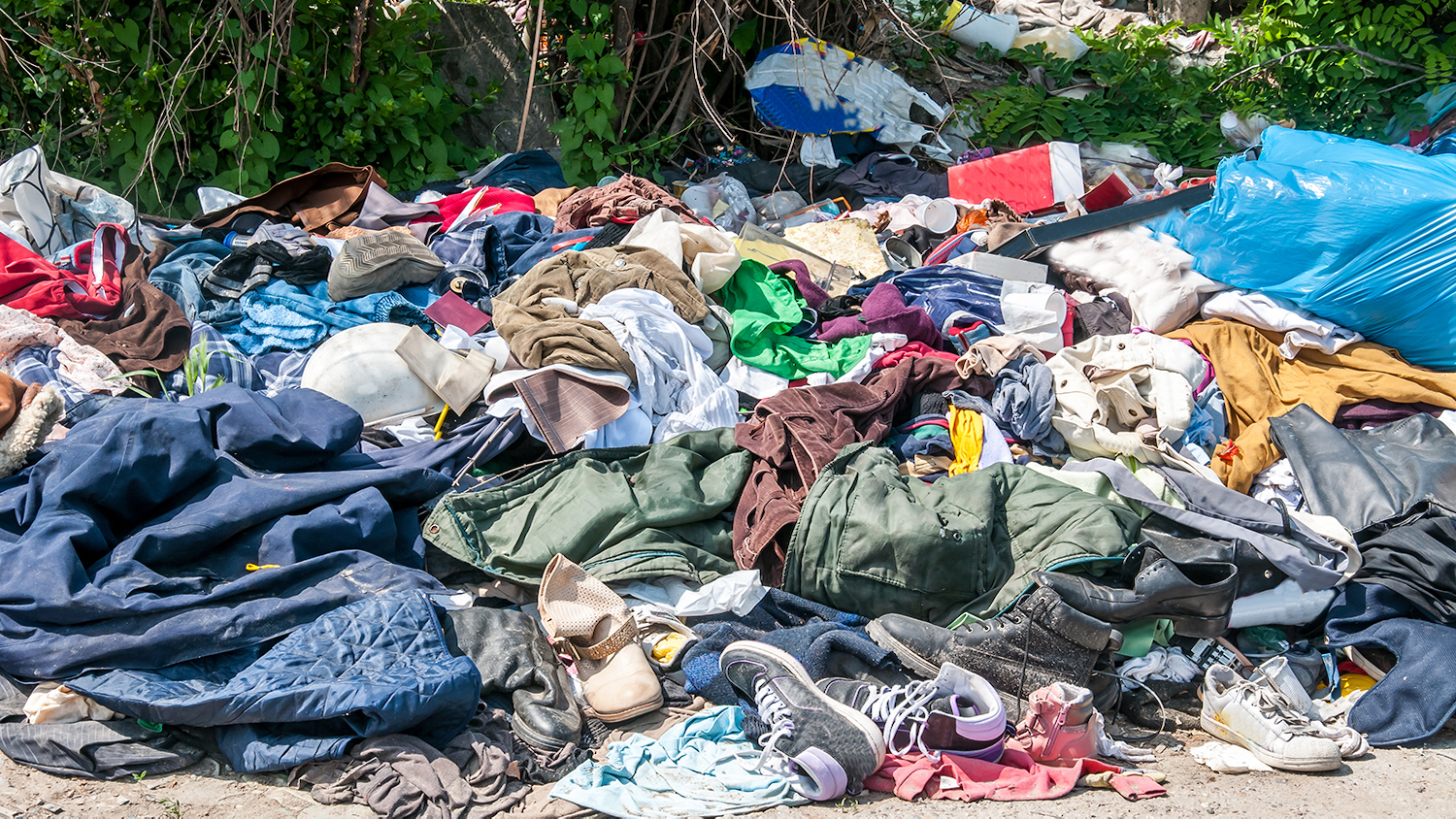Our Clothes Are Polluting the Environment. Here’s A Solution.

Some aspects of modern life – flying overseas, driving your car on the interstate and drinking water from a plastic bottle – are known to cause environmental harm. But what about clothing? Well, as it turns out, throwing out that old jacket or donating your worn pair of tennis shoes to a local thrift shop can also have a detrimental impact on nature.
Each year, the average American disposes of nearly 70 pounds of used clothing. That amounts to 16 million tons for the entire United States. About 40% of the nation’s consumers say they donate unwanted apparel to charities, which appears beneficial to those in need as well as the environment. However, data suggests that 85% of those donations will end up in a landfill where they can decompose and release greenhouse gases or leach dyes and other harmful chemicals into the ground and water supplies.
A research collaboration between Cotton Incorporated, a nonprofit marketing and research organization representing upland cotton, and NC State’s College of Natural Resources is underway to address this issue by determining whether post-consumer cotton textiles — clothing, fashion accessories, towels, bedding and drapery — can be transformed into sustainable building blocks for new and usable products.
“Compared to other fibers, cotton textile fiber is inherently unique from a chemical and biological perspective, because it is essentially pure and natural cellulose,” said Ronalds Gonzalez, an assistant professor of conversion economics and sustainability in the Department of Forest Biomaterials.
As a result of this composition, cotton clothing has the potential for near-complete hydrolysis (the chemical breakdown of a compound due to reaction with water) into bio-based building blocks such as glucose – a simple sugar. Put another way, cotton clothing has the potential to be utilized as a post-consumer biomass for the production of new value-added products.
While this idea and area of research is not new, there are limited studies specific to post-consumer and textile-based feedstocks. Additionally, most academic work in this area utilizes exotic processes and components, making industrial feasibility highly questionable.
For the last few years, research at Cotton Incorporated, led by Matt Farrell and Mary Ankeny in the Textile Chemistry Research Department, has focused on developing a chemical and enzyme-based cotton-to-sugar concept that could be easily adapted in the commercial realm.
Cotton Incorporated is now collaborating with Gonzalez and a team of researchers in the Department of Forest Biomaterials to investigate the technical and economic feasibility of this approach. As part of the collaboration, the NC State team has also developed a highly efficient and simple process to degrade cotton fabric.
“In research, we are constantly introduced to the next best idea. Typically, these ideas are accompanied by unrealized technical or economic challenges that mitigate the practicality of the idea,” Farrell said. “The ideas and developments of the NC State professors not only showcase practicality but highlight the power of collaboration, the power of a sustainable chemistry mindset, and the power of cotton as a ubiquitous material to be used and reused in nearly all facets of everyday life.”
Gonzalez added that the process is free of chemicals, energy efficient and economically feasible. It has been proven at bench-scale and the team is working toward a pilot scale demonstration in 2021.
The research will ultimately create new business opportunities and reduce greenhouse gas emissions, according to Gonzalez. “This research is at the heart of the circular economy enabling the transformation of waste materials for further utilization.”
In addition to Gonzalez, the NC State research team also includes Hasan Jameel, a professor, and Ronald Marquez, a postdoctoral research scholar, both of the Department of Forest Biomaterials.
- Categories: